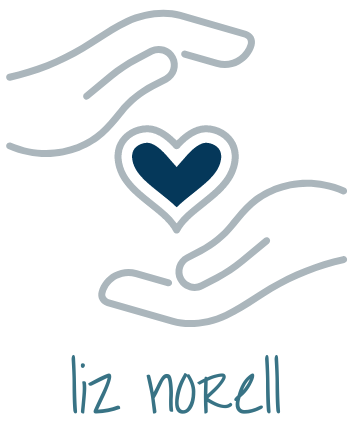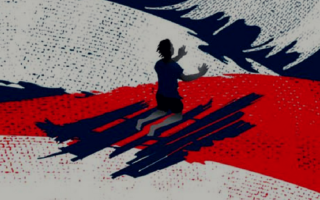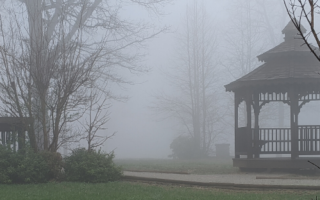 At a political science conference last January, another professor and I started talking about civic education and civic engagement among our students. This is something I’ve read about a bit, but it’s not something I’ve honestly made all that much of an effort to incorporate into my classes before.
At a political science conference last January, another professor and I started talking about civic education and civic engagement among our students. This is something I’ve read about a bit, but it’s not something I’ve honestly made all that much of an effort to incorporate into my classes before.
I’d trace the lack of effort in this regard back to two things: First, political scientists often argue that they are teaching their students the theories of our discipline, which help our students develop critical minds and a reliance on empirical evidence. The prevailing wisdom of our discipline is that teaching students how to become competent citizens isn’t our job. Second, while I certainly make an impassioned plea each semester on the importance of voting, I haven’t before felt the emphatic need to encourage active engagement with government before.
But … well. Things are different in 2017, aren’t they?
So over the summer, I piloted a semester-long project in my online American Government course. (Aside: I’m a fan of a semester-long project; I’ve incorporated one into almost every course I’ve taken, as a way to focus the week-to-week material on a larger theme.) This Civic Engagement Project asks students to (1) identify who represents them in government at the national, state, and local levels, (2) research the broad strokes of each representative’s background, and (3) make an effort to reach out to each representative with a question or statement of policy preference. They then reflect on how this project changed the way they think about government and the strength of citizen voices on what government does.
To be honest, I expected the impact of this project on students to be neutral, at best. It was easy to imagine college students finding this project a hassle, tedious, and uninspiring.
Thankfully, though, the summer students surprised me. In their final reflections, they repeatedly wrote about how the mission of this project became evermore clear to them as they worked through the levels of government. One had coffee with her city council representative. Another decided to intern for her senator in DC next summer. And in perhaps the most fulfilling moment I’d had as a teacher in a long, long time, one wrote in the final reflection paper:
Since the completion of this semester-long project, I have formed a new sense of self in my community. I feel more connected to my country, and I can only imagine how empowered I could feel if I continue to be active. My learning experience was much greater than I expected initially. Not only did I grow as a citizen and learn new information, but I was able to better understand the material I was studying. Having a place for real-world application expanded my knowledge. My attitude towards government has changed, in that I do think some representatives do value my thought and opinions. Despite this change in attitude, I still believe there is an overall political agenda that takes precedence over things citizens are concerned about. I think it takes a loud, persistent voice to head and acknowledge. The best place to start with real change is probably my local community. Without Washington and high politics being involved, I think the chances of change are higher. Even though I believe that I, alone, am not enough to influence a decision or create true change, I still hold value to being an active and informed citizen. I stand a little taller when I am out in public knowing that I have played a small role in keeping my community flowing. I have encouraged my friends to become interested and involved; because if we want a government by the people, we mustn’t forget that WE are the people. I strongly recommend this assignment be kept in the course in the future. It makes the textbook material easier to comprehend and it brings empowerment.
This fall, I’ve kept the same basic structure, with one major change: I’m now also asking students to attend a public meeting or event with one of their elected representatives — be that city council, school board, a town hall meeting, a hearing or session of a legislative body, etc.
I’m very curious to see how students in a regular (fall) semester react to this project, but I can tell you that in the first two weeks of classes, my students have taught me an enormously important lesson: Knowing how to identify your elected officials is hard.
I wouldn’t have believed it if I hadn’t spent literally hours over the last two weeks explaining the difference between US senators from Tennessee and Tennessee state senators. Or explaining that local governments have both city and county representatives / councils / commissions. Or helping students understand that while Paul Ryan is a member of the national government, he’s not their representative. And so on.
I’ve been politically attentive long enough to find these questions easy to answer. You want me to tell you who represents me? Before Trump was elected president, I could name my national representatives, and I knew one person who represented me locally, but I was completely ignorant of my state legislators. But I at least knew HOW to find out who they were.
My students have taught me that this is a privilege, and it’s not one that many of our peers share.
When my friends lament how politically unaware others are, or how complacent Americans have become, or how ignorant voters in this country are, they are operating from an assumption that Americans know HOW to engage with government and simply choose not to. My students have taught me that we’re all wrong. We know most Americans don’t know who represents them at the various levels of government, but we assume that they could find out. And we’re wrong.
Incredibly, the first part of this semester-long project — namely, identifying the people who represent you … just finding their names! — is the single hardest part of the whole damn project. Let that sink in. Just finding out who is advocating on your behalf is harder than researching their background, contacting them, or going to a meeting at which they preside.
Theories of political science are endlessly fascinating for many of us, no question. But if we want our students to engage in critical thought about how groups of representatives make decisions for the rest of us, we’d better start by ensuring they understand, at a FAR more basic level, how this whole thing works. If we want the American public to trust our institutions, believe that our elected officials work on our behalf, and live a more informed and engaged life, we’d better start by demystifying what feels, to so many of our compatriots, like an impossibly opaque system.
There are those in my discipline who would say that I’m taking a rigorous academic course and making it a civics class, the likes of which they should’ve paid more attention to in eighth grade. Honestly, at this juncture, I’m beyond caring what those critics would say. When learning is centered on making the seemingly opaque more relevant to the life of the learner, long-term impacts are possible. When students understand who is working on their behalf, and start to see those people as … well, people, the salience of everything else we want to teach gets a boost.
I’m eager to see how this semester goes, and be sure that I will let you know. I’m also going back to that political science conference next January to report my findings and hopefully inspire other lofty academics to reshape how they think about what our students do or do not know.




